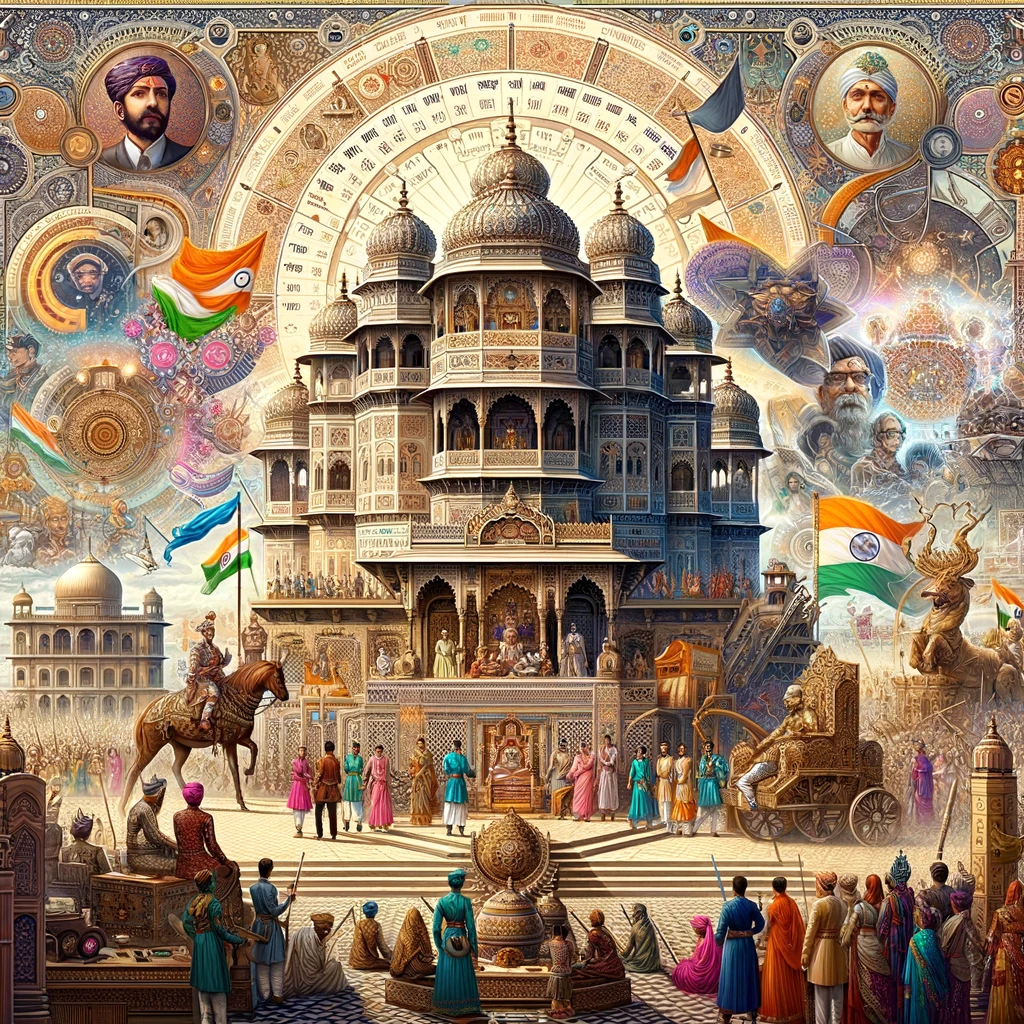On This Day 6 February 2024 Tuesday
Sam Vikram: 2080 Purnimanta Mass: Magha Paksha: Tithi: – Feb 08 11:17 AM – Feb 09 08:02 AM
 Panchang / पंचांग
Panchang / पंचांग
Virram Samvat / विरम संवत: 2080
Shaka Samvat / शक संवत: 1945
Amanta Month / अमान्त मास: Pausa
Purnimanta / पूर्णिमांत: Magha
Tithi / तिथि: Krishna Paksha Ekadashi
On This Day- Today/ आज
Festivals Today: Shatatila Ekaadashee
Festials Tomorrow: Pradosh Vrat
Day Today: International Day of Zero Tolerance to Female Genital Mutilation (A/RES/67/146)
Day Tomorrow: ”
Yoga / योग:
Vyaghata – Feb 05 10:52 AM – Feb 06 08:50 AM
Harshana – Feb 06 08:50 AM – Feb 07 06:08 AM”
Karana / करण:
Balava: 04:52 AM – Feb 06 04:07 PM
Kaulava: 04:07 PM – Feb 07 03:10 AM
Taitila: 03:10 AM – Feb 07 02:02 PM”
Sunrise / सूर्योदय: 7:10
Sunset / सूर्यास्त: 17:59
Moonrise / चंद्रोदय: 3:50
Moonset / चंद्रास्त: 13:58
 Auspicious Time / शुभ समय
Auspicious Time / शुभ समय
![]() Inauspicious Time / अशुभ समय
Inauspicious Time / अशुभ समय
Rahu – 3:17 PM – 4:38 PM
Yamaganda – 9:52 AM – 11:13 AM
Gulika – 12:35 PM – 1:56 PM
Dur Muhurat – 09:20 AM – 10:03 AM, 11:15 PM – 12:08 AM
Varjyam – 03:12 PM – 04:43 PM, 04:56 AM – 06:27 AM
Information Source: https://www.prokerala.com/
Today / आज
Freedom Fighters sacrificed / राष्ट्रवादियों ने बलिदान दिया था At Least/ कम से कम:
Major Historical Events / प्रमुख ऐतिहासिक घटनाएँ On This Day
Historical Events in Brief / ऐतिहासिक घटनाएँ संक्षेप में On This Day
Historical Events of February 6th: A Reflection Across Centuries
February 6th has been a date of significant historical events, ranging from pivotal moments in the formation of nations to solemn instances of violence and political turmoil. This day marks occurrences that have shaped societies, governance, and the socio-political landscape across different continents and eras. Here, we examine notable events that occurred on this day, reflecting on their impact and historical significance.
The Ratification of the U.S. Constitution by Massachusetts (February 6, 1788)
On this day in 1788, Massachusetts became the sixth state to ratify the new U.S. Constitution, with a vote of 187 to 168. This ratification was a crucial step in the establishment of the United States of America under a new framework of governance that would eventually be accepted by all thirteen states. The ratification process was marked by debates and compromises, reflecting the diverse interests and concerns within the states. Massachusetts’ decision to ratify the Constitution underscored the growing momentum towards a unified federal government and played a key role in shaping the nation’s future.
Queen Elizabeth II Becomes Monarch (February 6, 1952)
On February 6, 1952, a pivotal moment in history was marked as Queen Elizabeth II ascended to the throne, thereby becoming the monarch of the Commonwealth realms. This significant transition followed the passing of her father, King George VI, catapulting her into one of the longest-reigning monarchs in recorded history. Throughout her reign, Queen Elizabeth II has been a witness to, and a participant in, monumental shifts within the political, social, and economic landscapes of the Commonwealth countries, as well as the world at large. Her tenure is characterized by an unwavering commitment to public service and duty, emblematic of the monarchy’s adaptive role in an ever-evolving modern era.
The Murder of V Ramalingam in Tamil Nadu, India (February 6, 2019)
The tragic event on February 6, 2019, in Tamil Nadu, India, brought to the forefront the severe consequences of religious and communal tensions. On this day, V Ramalingam, a leader of the Pattali Makkal Katchi (PMK), fell victim to a brutal attack in Kumbakonam, Thanjavur district. The assault, carried out by individuals from a minority community and allegedly motivated by opposition to religious conversion, led to his untimely death due to excessive bleeding after his hands were cut off. This incident not only sparked widespread outrage but also underscored the pressing issues surrounding religious conversion and the imperative for communal harmony in the region.
The Killing of Rupesh Pandey in Jharkhand, India (February 6, 2022)
Another grim event took place on February 6, 2022, in the Hazaribagh district of Jharkhand, India, where Rupesh Pandey was killed by a group identified as a Muslim mob in Dulmaha village. Despite the brutality of the attack, local police were criticized for not labeling the incident as mob lynching. This event underscored issues of communal violence and the challenges of law enforcement and justice in areas plagued by religious and communal tensions.
Anniversary / वर्षगांठ On This Day
Swami Shraddhanand (Born on this day in 1856)
Celebrated on this day, the birth of Swami Shraddhanand in 1856, emerges as a cornerstone in the narrative of India’s freedom movement and the resurgence of Hinduism. His tireless efforts towards social reforms, particularly in advocating for the re-conversion of those who had converted to other religions, have left an indelible mark. As a prominent member of the Arya Samaj and an active participant in the Indian National Congress and the non-cooperation movement, his dedication to India’s independence and educational reform, notably through the establishment of Gurukul Kangri University, underscores his commitment to cultivating a strong sense of pride and cultural identity among Indians.
Khan Abdul Ghaffar Khan (Born on February 6, 1890)
The anniversary of Khan Abdul Ghaffar Khan’s birth in 1890 serves as a reminder of his pivotal role as a steadfast ally of Mahatma Gandhi and a passionate proponent of the non-violent independence struggle. Fondly remembered as the “Frontier Gandhi,” his foundation of the Khudai Khidmatgar (“Servants of God”) movement galvanized the Pashtuns of the North-West Frontier Province against British colonial rule. His dedication to non-violence and his efforts to foster communal harmony between Hindus and Muslims stand as a testament to his enduring legacy of peaceful resistance.
Motilal Nehru (Born on February 6, 1931)
Today also serves as a day of remembrance for Motilal Nehru, a seminal figure in India’s quest for independence and the patriarch of the Nehru-Gandhi family. His illustrious career as a lawyer and politician was marked by his instrumental role in the formation of the Swaraj Party, aimed at achieving self-governance within the British Empire. His advocacy for constitutional reforms and civil rights has laid a solid foundation for subsequent generations. The legacy of Motilal Nehru is celebrated not only for his contributions to India’s freedom movement but also for his pivotal role in nurturing future leaders, including his son, Jawaharlal Nehru, who would emerge as independent India’s first Prime Minister.
Rajkumari Amrit Kaur (Born on February 6, 1964)
The birth of Rajkumari Amrit Kaur on this day commemorates the life of a pioneering figure in Indian politics and a devoted activist for freedom. As one of Mahatma Gandhi’s closest allies, she significantly contributed to India’s independence movement and championed the cause of women’s rights. Her tenure as the first Health Minister of India is notably remembered for her efforts to establish the All India Institute of Medical Sciences (AIIMS) and for her contributions towards the enhancement of health care and social welfare in India. Today, we celebrate her vision for a healthier and more equitable India, honoring her commitment to public service and reform.
S. Sreesanth (Born on February 6, 1983)
On this day, we celebrate the birth of Shanthakumaran Sreesanth, a prominent figure in Indian cricket known for his fast bowling. Born in Kothamangalam, Sreesanth has been a key player for the Indian national team, contributing to its successes, including the 2007 ICC World Twenty20 and the 2011 ICC Cricket World Cup victories.
Babe Ruth (Born on February 6, 1895)
George Herman “Babe” Ruth Jr., an all-time great baseball player, was born in Pigtown, Baltimore, Maryland, USA. Babe Ruth’s legendary career in Major League Baseball, primarily with the New York Yankees, set numerous records and left an indelible mark on the sport.
Arthur Ashe (Died on February 6, 1993)
This day also marks the anniversary of the passing of Arthur Ashe, a groundbreaking tennis player from Richmond, Virginia, USA. Ashe’s remarkable career was highlighted by winning three Grand Slam titles, and he is remembered for his activism in civil rights and AIDS awareness.
Leon Goretzka (Born on February 6, 1995)
Celebrating his birthday, Leon Goretzka, the German footballer from Bochum, has made significant contributions to his clubs and the German national team. Known for his versatility and midfield prowess, Goretzka continues to excel at the highest levels of the sport.
Joost van der Westhuizen (Died on February 6, 2017)
On this day, we remember Joost van der Westhuizen, a legendary South African rugby player, who passed away in 2017. Van der Westhuizen was celebrated for his performance as one of the finest scrum-halves in rugby history, playing a key role in South Africa’s 1995 Rugby World Cup victory.
Angad Bedi (Born on February 6, 1983)
Angad Bedi, an Indian actor and celebrity, shares this day as his birthday. Known for his roles in Bollywood films and on Indian television, Bedi’s contributions to the entertainment industry have garnered him recognition and acclaim.
Nora Fatehi (Born on February 6, 1992)
Also celebrating her birthday on this day is Nora Fatehi, a Canadian actress and dancer of Moroccan origin, who has made a significant impact in the Indian entertainment industry. Fatehi is celebrated for her dance performances in Bollywood films and music videos.
Freedom Fighters’ sacrifice / राष्ट्रवादियों के बलिदान
The Indian Freedom Struggle: Key Events on February 6th
The struggle for India’s independence from British rule was marked by numerous acts of bravery, sacrifice, and resistance across different periods. February 6th stands out as a day when significant events unfolded, highlighting the relentless pursuit of freedom by individuals from various walks of life. This essay examines three pivotal incidents that occurred on this day, showcasing the diversity and intensity of the freedom movement.
On This Day: The Execution of Mohomed Bux (February 6, 1858)
The 1857 Uprising and its Heroes
One of the early instances of resistance against British rule was the Indian rebellion of 1857. Mohomed Bux, a resident of Delhi, actively participated in this uprising, showcasing the widespread discontent among Indians. His involvement illustrates the broad base of resistance that transcended social and communal lines.
The Ultimate Sacrifice
Caught by the British, Mohomed Bux was charged with rebellion, convicted, and sentenced to death. On this day, February 6, 1858, he was executed by hanging. His death serves as a grim reminder of the severe consequences faced by those who dared to stand against colonial oppression.
On This Day: The Martyrdom of Sheo Narain Tiwari (February 6, 1932)
Civil Disobedience and Kisan Agitation
Sheo Narain Tiwari, a farmer from Uttar Pradesh, became involved in the Civil Disobedience movement in 1930. His activism continued with his participation in the Kisan agitation in 1932, focusing on the issue of land revenue payment. This period was marked by widespread mobilization against British policies.
A Tragic End
During the height of the agitation, on February 6, 1932, a confrontation led to tragedy. The police and the Tehsildar opened fire on the agitators, resulting in Tiwari’s death from a gunshot by the Tehsildar. This event underscores the violent lengths to which the colonial administration went to suppress dissent.
On This Day: The Passing of Satkari Banerji (February 6, 1937)
A Life of Revolution
Satkari Banerji, a member of the Jugantar Party, was deeply involved in revolutionary activities against British rule in Bengal. His efforts included planning political dacoities and supplying arms for the cause. Despite facing arrests and imprisonment, Banerji’s commitment to India’s freedom remained unwavering.
End of a Revolutionary
On this day, February 6, 1937, Satkari Banerji died while detained in the Deoli Camp. His life and death symbolize the sacrifices made by revolutionaries who faced severe hardships and paid the ultimate price in their fight for independence.
Conclusion: Remembering the Heroes of February 6th
The incidents on February 6th across different years serve as poignant reminders of the courage, sacrifice, and dedication of those who fought for India’s freedom. From Mohomed Bux to Sheo Narain Tiwari and Satkari Banerji, each story reflects the multifaceted struggle against colonial rule. These narratives not only honor the memory of these freedom fighters but also inspire future generations to remember the collective effort that led to India’s independence.
Feature Image: The image is a vibrant composition that intricately weaves together elements of Indian royalty, historical events, and cultural symbols. It features architectural marvels reminiscent of Jaipur’s palaces and forts, alongside emblems representing the royal heritage of Gwalior. Figures that could be interpreted as leaders or visionaries, such as those resembling Jai Singh III and Madhavrao Scindia, are depicted, highlighting their significance in the context of Indian history. The Indian flag is prominently displayed, symbolizing the transition towards an independent nation. The background includes astrological symbols and dates, subtly integrating the Panchang elements mentioned in the essay, such as the Virram Samvat and Shaka Samvat years. The overall composition is rich in detail, color, and symbolism, aiming to capture the exploration of India’s past, its royal legacy, and the ongoing journey of its evolution. The artwork evokes a sense of reflection and inspiration, celebrating India’s historical achievements and cultural festivities. (Click here to view the image) [Image Credit: https://www.wikipedia.org]
